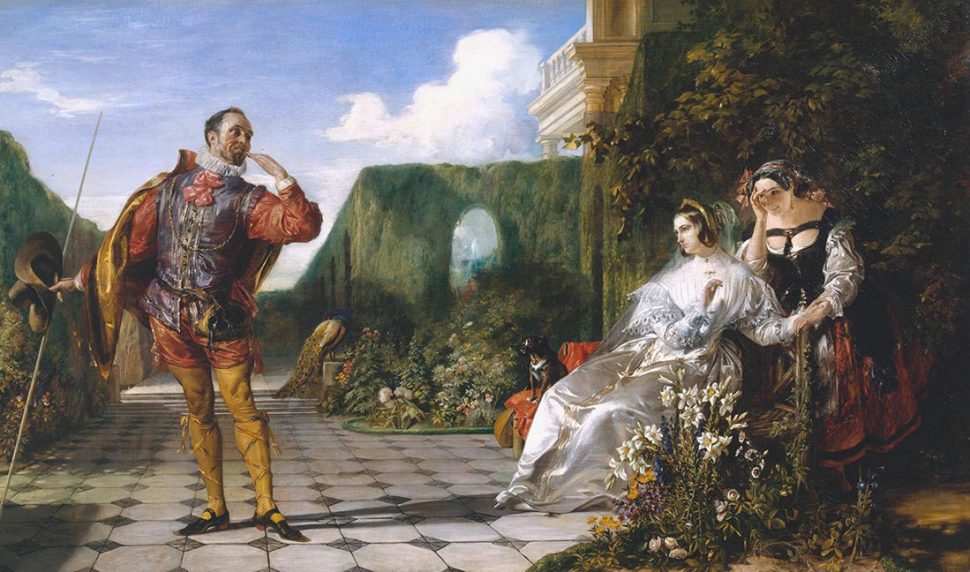
Give me excess of it; that, surfeiting,
The appetite may sicken, and so die.
That strain again – it had a dying fall.
O, it came o’er my ear, like the sweet sound
That breathes upon a bank of violets,
Stealing, and giving odour. Enough, no more,
‘Tis not so sweet now, as it was before.
O spirit of love, how quick and fresh art thou,
That, not withstanding thy capacity
Receiveth as the sea, naught enters there,
Of what validity and pitch soe’er,
But falls into abatement, and low price,
Even in a minute; so full of shapes is fancy,
That it alone is high fantastical.
William Shakespeare
William Shakespeare, the greatest poet-playwright of all time, is also the most quoted. But one might also say, among the most misquoted. The power of his poetry appeals to all, as do the truth, enduring relevance and applicability of his ideas and his fathomless commentary on humanity. He commands all subjects, as well as the words and verses to describe them, and the amazing ability to make them live forever.
Love and music are among the most popular subjects that appeal to a range of readers, as they have done since Elizabethan times. Many are the plays that expound on those themes, especially the comedies and the romances, although the romances are harder to understand, how they take the audience through many dark episodes, if not suffering and near tragedy, before happiness triumphs in the end.
But what do you make of the speech quoted above on the subjects of music and love? It is among the most popular, and very often quoted. Surely the best known and most popular line from Shakespeare is Hamlet’s: “To be or not to be, that is the question”. Worthy of honourable mention is Romeo and Juliet’s “Romeo, Romeo, wherefore art thou Romeo?” but the speech reprinted above is not far behind; so much so, that the line, “If music be the food of love, play on” has become a cliché in the English language.

